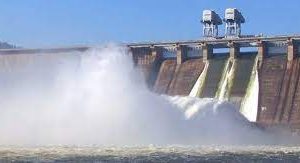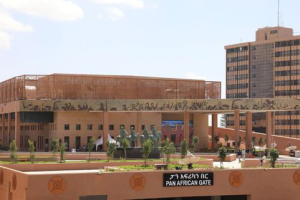Ethiopia is left solely with twenty two days to conduct the 6th national elections. The parties’ debate on various national issues like social, economic, political, constitutional or administrational using many media outlets, be they are private or public, is continuing. Among the various agenda tabled on discussion or debate, whether the constitution is amended or not, is case in point.
It is amazing to hear debating on the constitution because in many countries’ constitution is ratified through reaching consensus among various political groups and the public at large. In the politically stable countries and where matured political culture is mushroomed, the constitution is not questionable. During the election, the debates have been focusing on economic and foreign policies and other relevant issues. Debating on the constitution indicates that, the constitution is introduced to serve the few interest groups without reaching in to consensuses by the majority. It also indicates that, how the nation politics is still in its primordial stage.
In Ethiopia, it has been common to introduce the constitution following a top-down approach which ultimately serves the few political elites and subjugates the mass.
The 1931 constitution which is the first in the modern history of Ethiopia was written and implemented in such a marginalized manner. The legislation was bicameral which constituted the lower and the upper house, but the ultimate power was vested on the hand of the emperor. In fact, in that era due to the absence of education except the very tiny elite groups, the majority of the population was illiterate. The public believed that the king was appointed by God and when grievance had occurred the duty of the public was praying to God. The second constitution was introduced in 1955. Though it was relatively modernized, the law gave absolute power to the emperor.
The overthrow of the imperial formation by unconstitutional means in 1974 clearly proved the discontinuity of the system. The change of the regime brought good opportunity to the nation for cultivating new democratic order, but it was missed. Instead of accommodating various political views and groups, the Dergue rooted them out and the politics was left to a one man rule.
The regime governed the country for 17 years without constitution and its constitution introduced in 1988 lasted only for three years. The regime was unable to bring peace and stability to the nation and spent time crushing opponents who waged war against it.
Similar to the monarchial system, the Dergue was toppled from power by unconstitutional means. The EPRDF, which was assuming of power by force in 1991, also brought about a glimpse of hope to attain peace and stability.
For the first time in the history of nation, the ruling party announced that the nation pursues a multi-party political system and many political parties were registered as legal party to run their objectives in a peaceful manner. Freedom of expression and the right to association were also guaranteed by the charter but sooner rather than later the hope began to defuse.
Harassing members of the opposition and journalists became a common phenomenon. The ruling party before the ratification of the constitution in 1995, crafted ethnic based maps and unlawfully implemented without the public consent. Many argue that, the terrorization of the country along ethnic line has been a source of conflict and displacement for hundreds of thousands.
The constitution in its preamble says that, “We the Ethiopian nation, nationalities and peoples based on the consent of our constituency who elected us we ratified the constitution.” Here the preamble totally denied citizens’ rights to participate in formulating the constitution. Moreover, many assert that, the constitution was introduced in a non-transparent manner similar to the past political orders. In parts of the constitution though both individual and group rights got recognition, it practically ignored citizens’ rights. It gave more emphasis for group rights and became the centrifugal point of the politics.
Once again peace and stability became out of sight and unattainable. Violating of citizen rights, extra judicial arrest and killing became rampant and the trauma is still with us to date. Ethnic conflicts and displacement of peoples and demolishing of properties still persist and as mentioned above the ethnic based terrorization is blamed for this terrible situation.
Some regions in their constitution clearly indicate that their territories belong to the so-called indigenous groups and the rest none indigenous are categorized as settlers and invaders.
The Harari and the Beneshangul-Gumuz regions constitutions can be mentioned as the case in point in this regard. Such a situation gave rights to the regional officials to arbitrarily evict the non-indigenous Ethiopians with impunity for the last three decades. Almost a decade ago while asked the regional government head with regard to the eviction of Amharas from Guraferda woreda in the Southern Nation Nationalities and Peoples region, it stated in a mockery way that, they were evicted because they were found guilty of clearing forests.
The state government had responded in such manner because the law enshrined in the region’s constitution supports its cruel act and knew that the regional government was not subjected to legal liability. Similar atrocities in various parts of the country happened. Four years ago, 900 thousand Oromos also were displaced from Somali region due to the flare up of conflict and no one put into account for this criminal act. Hence, we can conclude that both the federal and the regions constitutions, instead of bringing peace and stability, they have been the source of conflict and displacement.
Therefore, to ease the decade-long miserable situation and to bring long lasting solutions, amending the constitution should be taken as a way out and a viable means to get the sources of conflict and confrontation dried for good. Currently, the engineer of the constitution, TPLF has been ousted and leveled as terrorist organization but the constitution is still in place. The reformist group led by Prime Ministry Abiy Ahmed has been portraying strong commitment to change the political landscape of the nation to the better and has taken multifarious helpful measures for the flourishing of democracy.
The 6th national election is expected to bring a glimpse of hope to advance the nation political aspiration. The competing political parties in the coming election got platform to air their views by media whether there is constitutional means to amend the constitution or not.
With regard to amending the constitution, the constitution Article 105 sub-Article 2 stipulates that all provisions of this constitution other than those specified in sub article 1 of this article can be amended only in the following manner.
First, when the house of people’s representatives and the house of federation in a joint session approve a proposed amendment by a two thirds majority vote.
Second, when two-thirds of the councils of the member states of the federation approve the proposed amendment by majority vote.
We can understand from the mentioned articles that amending the constitution requires a complicated process and even looks unattainable to put into practice. Article 105 (2) b clearly shows this. In the Tigray region election will not take place in the coming 6th national election and after the election there will not be elected body in the region. Hence, implementing the amendment procedures indicated in (b) is going to be impossible.
Therefore, unless the newly elected government uses extra constitutional means, amending the constitution is going to be very trying. We are really around the corner to witness whether the source of ‘dissection and inimical’-the constitutions-can be amended or not. May peace and tranquility prevail in Ethiopia!
BY ABEBE WOLDEGIORGIS
The Ethiopian Herald 29 May 2021





